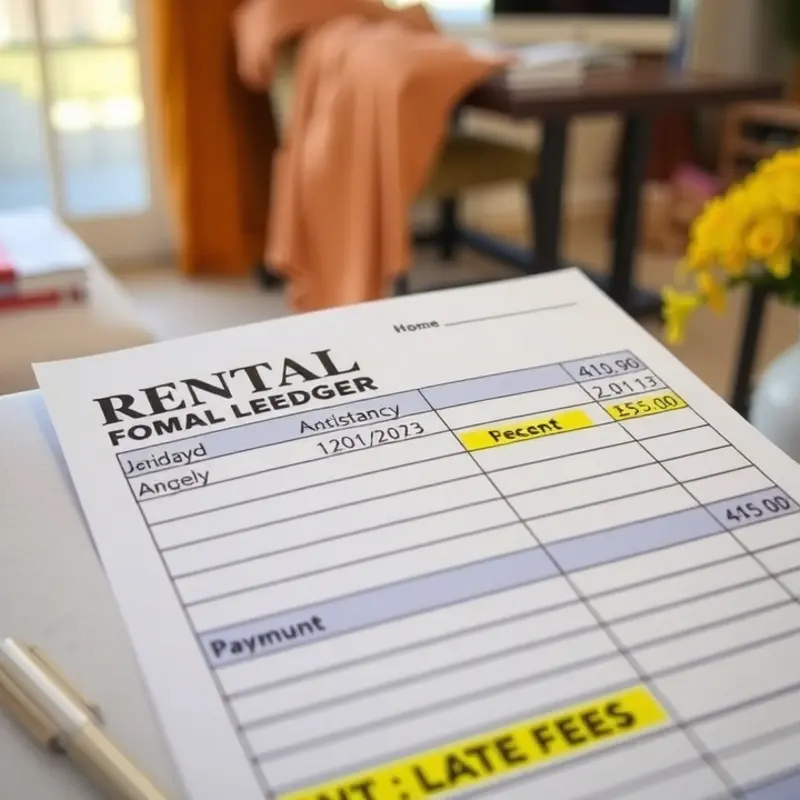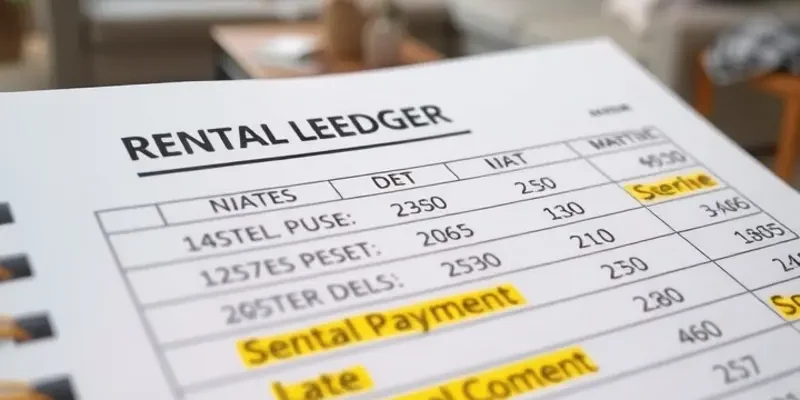Navigating the world of renting can be filled with complexities, especially for young professionals, students, couples, and families. A key element of this journey is the rental ledger, a critical document that outlines your payment history, charges, and any outstanding balances related to your lease. Understanding your rental ledger not only helps you stay accountable but also ensures you grasp the financial responsibilities attached to your rental agreement. This guide is designed to demystify this essential tool, providing you with practical tips and insights that will enhance your understanding of your rental payments, late fees, and how to resolve discrepancies. By the end of this guide, you’ll be empowered with the knowledge to manage your rental ledger confidently, making financial decisions that support your lifestyle and peace of mind.
What is a Rental Ledger and Why Does It Matter?

A rental ledger serves as a vital tool for any renter seeking to maintain financial clarity. Simply put, a rental ledger is a document that accurately records all rent-related transactions within your lease period. It includes the dates and amounts of payments, late fees, and any other charges. Understanding these components helps you track your financial standing with your landlord or property management company.
At its core, a rental ledger comprises several key elements. First, it lists rent payment dates and amounts. This section allows you to verify that your rent has been paid on time and in full. Additionally, any late fees incurred due to missed or delayed payments are also reflected in the ledger, providing a comprehensive view of your financial obligations.
Why does tracking these details matter? For one, an organized rental ledger ensures you remain in good standing with your landlord. Timely payments reflect well on your financial responsibility and can potentially support future rental applications. Moreover, in the event of discrepancies or disputes, a well-documented ledger serves as indispensable evidence to resolve issues swiftly. You can read more about resolving such billing errors to ensure clarity.
Keeping an eye on late payment fees is equally important. Being consistently late on rent payments not only incurs additional charges but may also affect your credit score. By referring to your rental ledger, you can identify recurring patterns and work towards rectifying them.
Another critical aspect is understanding lease terms. A rental ledger often ties closely with the terms outlined in your lease agreement. Familiarizing yourself with these terms ensures that you are aware of your contractual obligations, including when rent is due and what fees apply in different situations. Such understanding aids in avoiding misunderstandings and ensures a harmonious relationship with your landlord.
Maintaining a rental ledger doesn’t merely assist in organizing your finances; it empowers you with information. This empowerment can aid in scenarios like negotiating future leases, understanding housing market dynamics, and planning your budget effectively. By recognizing patterns and inconsistencies, you can make informed decisions about your housing situation.
Staying organized with a rental ledger contributes to a stress-free rental experience. Simply by having all rent-related information at your fingertips, you can minimize the risk of confusion, late fees, and disputes. As a first-time renter, developing these habits sets a strong foundation for responsible financial management and helps you navigate the rental market with ease.
Tips for Managing Your Rental Ledger Effectively

Properly managing your rental ledger ensures financial clarity and peace of mind. Begin with regular updates to keep track of rents paid and payments due. Record each transaction immediately to avoid errors. Consistency simplifies monitoring and minimizes confusion.
Utilize digital tools for efficient management. Many apps and spreadsheet tools can automatically calculate amounts and remind you of upcoming payments. These tools often allow you to upload receipts or lease agreements, centralizing your records. However, rely on tools that offer customizable features, enabling you to tailor them to your specific rental terms.
Active communication with your landlord or property manager is crucial. Notify them promptly of any discrepancies or changes in your rental situation. For instance, inform them if you notice any incorrect charges or if a payment was missed due to technical error. Transparent communication can prevent disputes and foster better landlord-tenant relations.
If issues arise and self-resolution proves challenging, it may benefit you to seek external guidance. For unresolved billing discrepancies, consider consulting resources on resolving rental billing errors. This can provide additional insight and strategies for addressing such problems.
A critical aspect of managing your rental ledger effectively is maintaining accountability in your payments. Establish a process for systematically checking your ledger against receipts and bank records. This not only bolsters your financial oversight but also lays groundwork for improved rental credit, creating a positive rental history.
Lastly, address any errors quickly. Should you notice discrepancies in your ledger, such as unaccounted fees or missing payments, address them as soon as possible. Immediate action helps prevent larger financial issues and supports a cleaner ledger overall.
Embrace these strategies to maintain a streamlined and transparent record of your living expenses. Effort in managing your rental ledger is a worthwhile investment in your long-term financial stability and renting success.
Final words
Understanding your rental ledger is essential for financial clarity and effective lease management. By actively engaging with your ledger, you empower yourself to make informed decisions, maintain good relations with your landlord, and avoid unnecessary fees. Remember that your rental ledger is not just a record; it’s an active tool for ensuring your renting experience remains positive. Stay organized, communicate openly, and trust your ability to navigate this essential part of your financial responsibility. Armed with the knowledge from this guide, you’re better prepared to face your rental journey with confidence and peace of mind.









